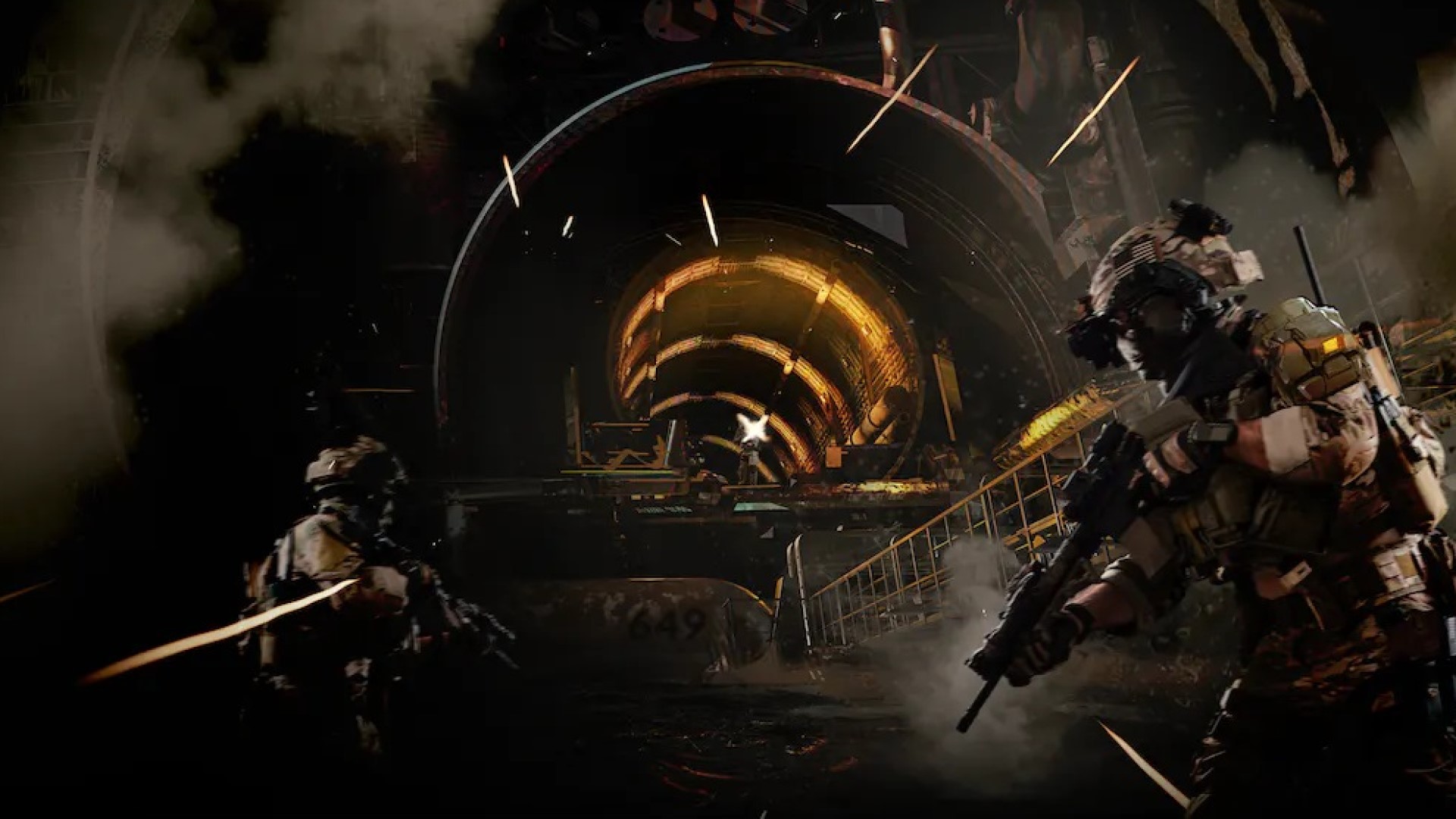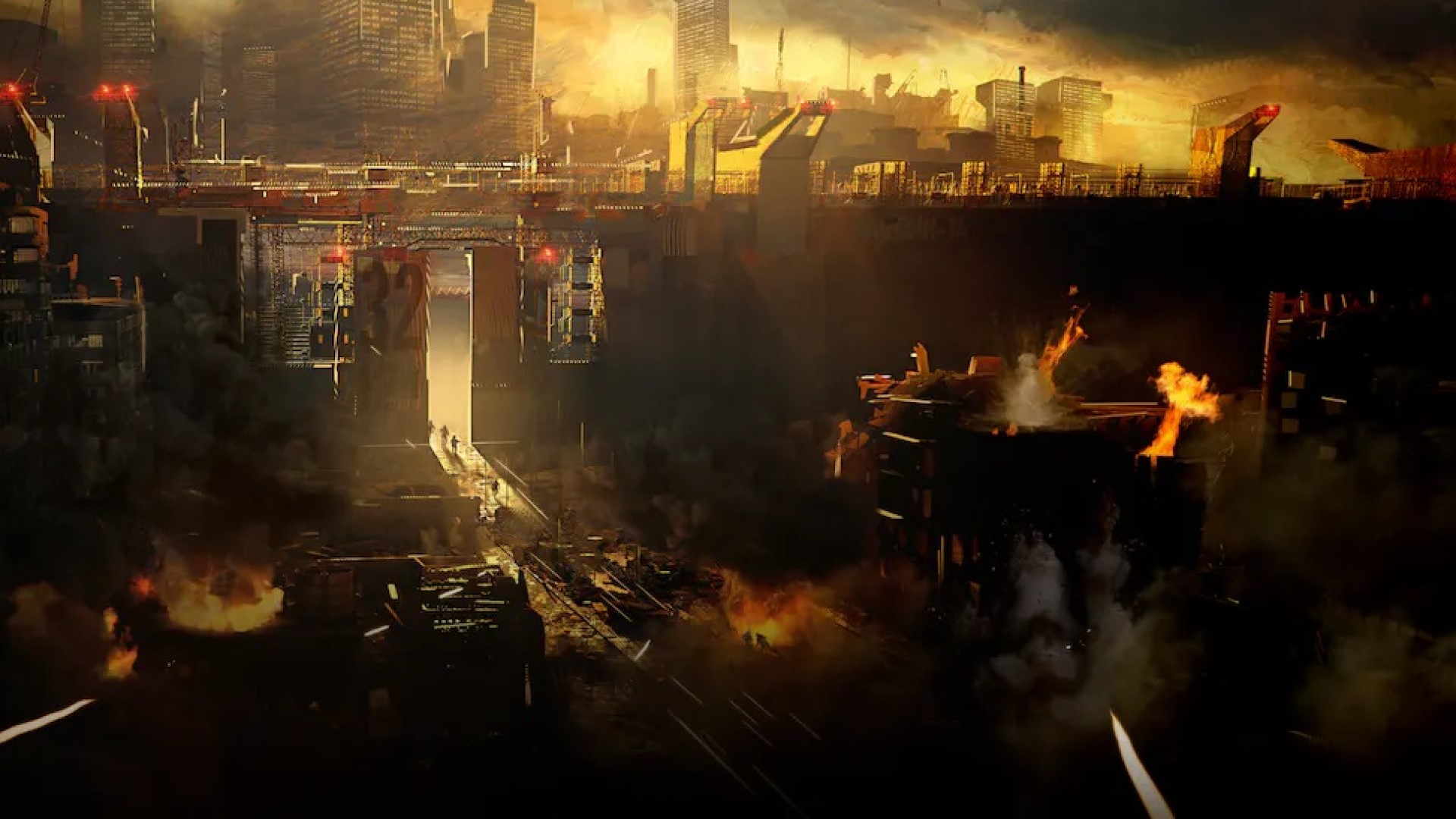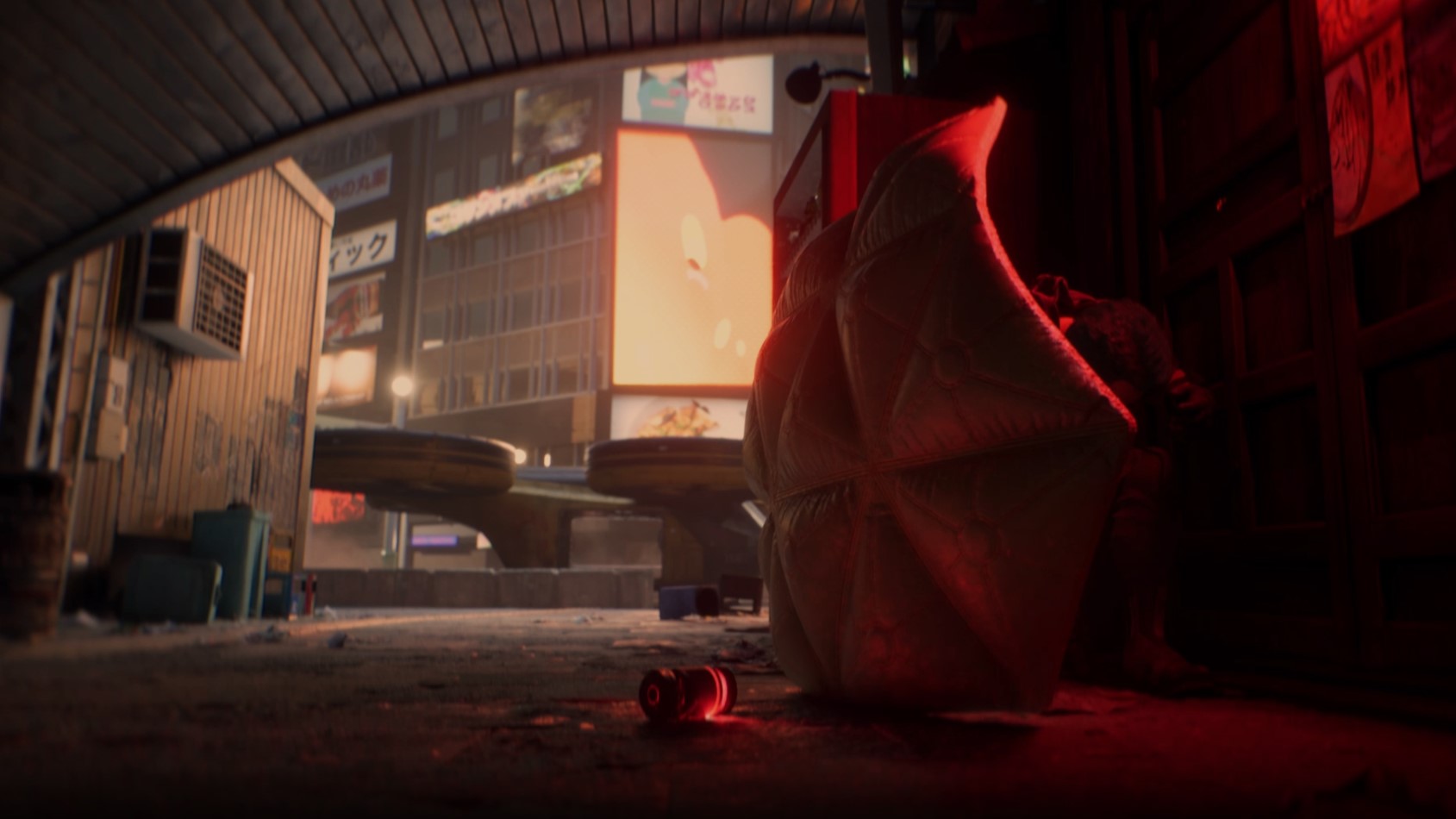Even the blockchain isn’t enough to put me off Sci-fi Extraction FPS Shrapnel
Shoot for the moon

Sign up for breaking news, reviews, opinion, top tech deals, and more.
You are now subscribed
Your newsletter sign-up was successful
Usually, the mere mention of the blockchain is enough to get my eyes rolling upwards. Though the technology itself is relatively benign, the extent to which it is wrapped up in predatory cryptocurrency pyramid schemes and frivolous gimmicks is, rightly, a cause for concern.
Enter: Shrapnel, an upcoming sci-fi extraction shooter that proudly declares its willingness to embrace blockchain technology. The game’s website describes this as “an approachable system to earn real money - sell and trade, play and win, create and own.”
It was with a spirit of skepticism, therefore, that I met with Don Norbury, the head of Shrapnel Studio.
“We were skeptical too”, said Norbury, keen to draw attention to the “legible, responsible way” he and his team seek to approach the title. He also stressed that there would be “no NFTs, or any of that stuff.” For Norbury “it’s a question of validity and ownership” to ensure that players can take their player-created assets to other Web 3.0 titles, if they so desire.
Though Shrapnel website does make mention of an "operators NFT collection", contrary to Norbury's statement, it seems to be the case that these are more analogous to pre-order bonuses more than anything else.
There seemed to be not the faintest whiff of an cryptocurrency-powered pyramid scheme
Norbury assured me that, though there’s a “custodial wallet” behind every account “you might never care that it’s on the blockchain, it’s just the technology that’s making it work,” the only difference being that “behind the scenes, when you make something [in the game] that is your IP.”
To me, this seemed like Halo Infinite’s Forge Mode with a series of highly convoluted extra steps. However, seeing as there seemed to be not the faintest whiff of a cryptocurrency-powered pyramid scheme, I pressed on and asked Norbury to describe the game proper.
Sign up for breaking news, reviews, opinion, top tech deals, and more.
Risk and Reward

According to Norbury, Shrapnel is a “high stakes treasure hunting” game. Each session can have “multiple winners.” In what the studio head calls a “twist on the extraction shooter”, Shrapnel has players fight over sections of a contested area, where hunks of valuable material fall from the half-destroyed remnants of Earth’s moon. In contrast to the likes of Fortnite, the sessions are as much about gathering resources as they are about killing other players. Some player builds encourage you to “be sneaky”, avoiding firefights altogether so you can better accumulate precious loot.
A great deal of the game experience is centered around “risk-reward evaluation”, continues Norbury. Do you leave during one of the “early extraction moments”, or do you stay in the game, risking more for the possibility of greater rewards? This element is, perhaps, what separates Shrapnel from the competition, more so than any whiff of blockchain technology.
A risk-reward calculus defines the entire Shrapnel experience
This risk-reward calculus defines the entire Shrapnel experience. Some players are going to be arming themselves for “early extraction moments” while others will be “equipping themselves almost exclusively so that they have a power curve that increases… over the course of the session.” Though the game “doesn’t have classes or roles in the traditional sense”, the “amalgamation of weapons, equipment, and perks that you choose, for your particular character, will grow and expand over time.”
During a mission in Shrapnel, the “session curve” is designed to intensify, beginning with speculative skirmishes for small resource pockets and ending with a “war of titans at the end” over the most lucrative treasure. This climax is designed to give Shrapnel “a little bit of the battle royale ending twist without it being battle royale” allowing determined players to duke it out for the “valuable thing at the end.”
Arranging the blocks

Outside of Shrapnel’s combat scenarios, the game is designed to support an ecosystem of player-generated content, aimed at broadening the play experience. Norbury and his team are dedicated to “allowing people to create content for Shrapnel.” While he was keen to acknowledge that “we’re not making a sandbox”, Norbury was keen to emphasize that “we want people to come in and have their own self-expression within the space.”
This is where the blockchain comes in. For Norbury and Co, the use of blockchain technology is all about allowing players to have “ownership of their digital creations.” For the Shrapnel developers, Web 3.0 “isn’t an if, it’s a when”, and it’s something they “want to be doing responsibly.”
However, as lofty as these ideas of abstract asset ownership might be, the creation tools themselves are refreshingly tangible and down-to-earth. “There are a few generic categories of stuff that people can make, that even includes callsigns which are like gamertags, as well as insignias. We took an accessibility angle to it when we are building our creator tools. Even with the map tool, you don’t have to be familiar with Unreal Editor to jump in and create a map.” Discovery system. And then we have a reward structure that rewards people based on their contribution to the entire thing. People who are part of the promotion activity as well also have a slice of that reward.”

The fact that this system is built on blockchain technology seems to do little to impede the vision Norbury and his team have for a community-friendly content creation ecosystem. Norbury himself even concedes that the technology is at the “technophile adoption stage”, enjoying something of a “honeymoon period” amongst its fans - a fact which suggests a reassuring degree of self-awareness on Norbury’s part.
Despite the modern Web 3.0 infrastructure, this is a tradition that harkens back to the days of community map-making in Halo and the original Doom. Norbury also emphasized the importance of having a “healthy marketplace, a healthy community, and making sure we don’t have abusive actors in there.”
Despite the modern Web 3.0 infrastructure, Shrapnel harkens back to the days of community map-making in Halo and the original Doom
This approach also applies to content distribution. “Anyone can access [the content]”, said Norbury, “if you publish it, it’s yours, it's not for sale and it just exists as a map that people can play. It goes into a content
Though blockchain is an “underlying technical foundation” for the game’s systems, Shrapnel does not seem poised to lean into the exploitative and negative aspects of Web 3.0, such as Cryptocurrency. It seems that Shrapnel isn’t being sold as a means to make money, but rather, as a way to build things for a community and own what you build.
As applications of Web 3.0 go, Shrapnel is refreshing and, while technically sophisticated, looks like it could avoid falling into the dangerous pitfalls and empty fripperies of the NFT craze. This isn’t to say that Shrapnel is poised to single-handedly redeem games that use blockchain, but, it may well accommodate the new technology in an unobtrusive way that won’t impede the action.
Though it's unclear if Shrapnel will join the ranks of the best FPS games out there, it's certainly one of the more interesting upcoming games on the docket and is certainly one to watch.

An editor and freelance journalist, Cat Bussell has been writing about video games for more than four years and, frankly, she’s developed a taste for it. As seen on TechRadar, Technopedia, The Gamer, Wargamer, and SUPERJUMP, Cat’s reviews, features, and guides are lovingly curated for your reading pleasure.
A Cambridge graduate, recovering bartender, and Cloud Strife enjoyer, Cat’s foremost mission is to bring you the best coverage she can, whether that’s through helpful guides, even-handed reviews, or thought-provoking features. She’s interviewed indie darlings, triple-A greats, and legendary voice actors, all to help you get closer to the action. When she’s not writing, Cat can be found sticking her neck into a fresh RPG or running yet another Dungeons & Dragons game.